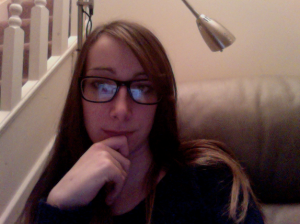When Googling “Selfies” the word “narcissism” almost always follows. It is all too easy to pass judgement on those who take photos of themselves but with 54 per cent of people (American statistics) having shared a selfie online, can they all be taking self-portrait photos out of self-obsession?
Although I have taken silly selfies shared between friends for three seconds on Snapchat, I have never turned the phone camera to my own face for the world to see on Instagram, Facebook or Twitter. By using too many hashtags and even taking pictures of epic meals, I tend to go along with social media trends but what is stopping me from being part of the most popular trend of 2013? One reason is I would probably get judged as being a narcissistic tool, which is not the image I want to portray. Yet, here I am writing a whole paragraph about myself on a blog for anyone to see…
“People have a deeply engrained need to be seen and recognised by others, and this [selfies] is one way of getting that recognition,” says psychotherapist Dr Aaron Balick, author of The Psychodynamics of Social Networking. “Social media has become our first-choice tool for presenting our public selves to the world. Selfies are one of the quickest and easiest ways to present your ‘public facing’ self to friends and others. It’s a way of saying to the world ‘here I am!’ – though, of course, this presentation is crafted in a way to present how you want to be seen by the world more than anything else.”
There is a lot of talk about how frequently posting selfies is an annoyance to followers and that is the aspect of selfies that needs to be controlled. Charlie Brooker recently said in his Videogames Changed the World programme that Twitter had become like a videogame where people seek the rewards of retweets and gaining followers – a theory that can also be applied to Instagram. You hashtag #selfie so your photo is more discoverable then you wait for the reward of ‘like’ notifications and the positive comments. Surely this sort of recognition is a self-image booster?
On the other hand, Dr Balick says,
“It is a rather ‘light’ form of recognition and one should avoid relying on it for self-esteem.”
By taking a selfie, you will always risk being judged, especially by strangers. “It is human nature to make judgements, though many times these judgments won’t be shared. The kind of judgement is dependent on context. A selfie shared on Facebook among known friends will be judged in the context of a deeper and more complex relationship with you — in effect it is contained by the friendship that extends outside just the photograph itself.
“If your selfie is shared amongst strangers on Twitter or Instagram, the viewer will have no choice but to make their judgement in isolation of knowing anything else about you – so this is the risk inherent in such exposure.”
Admittedly, I have been one of those that have judged people but perhaps because I have been ignorant to why people take selfies and always jumping to the conclusion of narcissism. And I am not alone in making this judgement. Just as I blog as an outlet for creativity and a hobby, people taking pictures of their outfits and make-up as a quicker way of displaying their creativity. In fact, people are getting more creative with their selfies – refreshing, I know. Selfies have gone from bedroom mirror duck-faced poses to the wild and wacky #SelfieOlympics.
Selfies might not be your thing. They’re not my thing. But they mean something to about 54 per cent of people so I plan to think before throwing around judgements. In fact, here is my first selfie, albeit a pretty boring one. #Cringe.
Do you defend selfies? Or do selfies boil your piss? Feel free to discuss!
